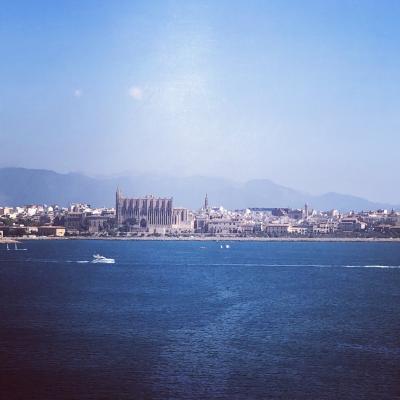How does the Mallorcan dialect spoken in Palma differ in vocabulary and pronunciation from more rural areas on the island?
Similar Topics
mallorcan dialect palma
palma vs rural
vocabulary differences mallorca
mallorcan pronunciation features
urban mallorcan speech
rural mallorcan expressions
spanish influence palma
mallorcan linguistic heritage
The Mallorcan dialect spoken in Palma, the island’s bustling capital, exhibits distinctive features in both vocabulary and pronunciation when compared to the dialects found in more rural areas of Mallorca. Due to Palma’s status as a cosmopolitan hub with significant tourist influx, the local speech has absorbed influences from Catalan as spoken in urban centers and from other languages, such as Spanish and even some Italian and English loanwords. This results in a somewhat more standardized and softer pronunciation, with less marked use of traditional Mallorcan intonations and expressions. In contrast, rural dialects tend to preserve more of the original phonetic traits and idiomatic richness, deeply rooted in local history and culture.
Pronunciation in Palma often leans towards a clearer and more neutral articulation, making it easier for visitors and newer residents to understand. In rural areas, however, the vowel sounds can be more open and nasalized, and speakers might use a stronger cadence that reflects a slower pace of life. The rural dialect also retains more archaic consonant sounds that have diminished or evolved in Palma’s speech due to urbanization and media influence. Vocabulary differences are pronounced, as rural speakers continue to use words and expressions derived from Mallorcan heritage linked to agricultural life, fishing, and local traditions, while Palma’s residents might favor a more modern lexicon with terms related to commerce, tourism, and contemporary culture.
Furthermore, in Palma, the influence of Spanish is particularly noticeable, with frequent code-switching in everyday conversation, especially among younger speakers. This bilingual interplay often leads to hybrid expressions that are less common in rural settings, where Catalan remains the dominant spoken language and cultural identity marker. Consequently, while Palma’s dialect reflects the dynamic interplay of modern city life, rural dialects offer a window into Mallorca’s linguistic past, preserving the island’s unique heritage in both sound and meaning. For travelers interested in authentic cultural experiences, appreciating these linguistic nuances enhances the understanding of Mallorca’s diverse identity.
Pronunciation in Palma often leans towards a clearer and more neutral articulation, making it easier for visitors and newer residents to understand. In rural areas, however, the vowel sounds can be more open and nasalized, and speakers might use a stronger cadence that reflects a slower pace of life. The rural dialect also retains more archaic consonant sounds that have diminished or evolved in Palma’s speech due to urbanization and media influence. Vocabulary differences are pronounced, as rural speakers continue to use words and expressions derived from Mallorcan heritage linked to agricultural life, fishing, and local traditions, while Palma’s residents might favor a more modern lexicon with terms related to commerce, tourism, and contemporary culture.
Furthermore, in Palma, the influence of Spanish is particularly noticeable, with frequent code-switching in everyday conversation, especially among younger speakers. This bilingual interplay often leads to hybrid expressions that are less common in rural settings, where Catalan remains the dominant spoken language and cultural identity marker. Consequently, while Palma’s dialect reflects the dynamic interplay of modern city life, rural dialects offer a window into Mallorca’s linguistic past, preserving the island’s unique heritage in both sound and meaning. For travelers interested in authentic cultural experiences, appreciating these linguistic nuances enhances the understanding of Mallorca’s diverse identity.
🧩 Related Questions
Related Question
What modern technologies are becoming essential for Mallorcan agriculture in the face of climate risks?
Related Question
What is the best time of year to take a scenic excursion from Inca to Pollensa?
Related Question
What changes occurred in Mallorca's tourism industry as a result of the Spanish Civil War?

